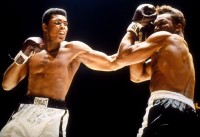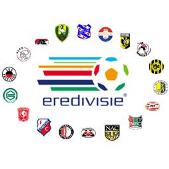The Netherlands has the intention to bid for the 2028 Olympics. One of the most difficult issues related to acquiring the Olympic Games will be the support of the population of The Netherlands. The International Olympic Committee regards widespread support as a very important element in awarding the games to one of the bidding cities. A recent poll showed that around 50% of the Dutch population would support a bid. So in this perspective a lot has to be done, particularly as the Dutch always appear to be very critical as soon as large expenditures are in play. Simultaneously often cynicism is shown whether The Netherlands will be able to organize such a big high profile event. Finally, as 1992 has blatantly shown, minorities can play a very big role in steering the public opinion. Hence it will be very important to have a targeted PR/communication campaign aimed at gathering widespread support of the Dutch population for the Olympic bid. I will briefly outline my view on how this can be organized.
If we want to sell the Olympic Games, we want to accomplish that consumers (or in this case the Dutch population) will embrace the games and identify themselves with it. Hence focus should be on honesty, equality and fraternity, the values of the game. If these values are sold properly through effective communications, it should be possible to grow support.
In order to permanently influence the HEART, SOUL AND MIND of the Dutch population we would design a campaign along the following main issues.
1. Create awareness and transparency on “potential issues”
No doubt a lot of criticism and issues will come forward aimed at why we should not organize the Olympic Games. In order to deal with these issues it will be required that there be full transparency and awareness on these issues. If these are put in the open, an adequate quick reaction should be given immediately, hopefully taking away the ground for the opponents or at least shortening the span of attention. In this perspective it will be extremely important that fulltime communication professionals, who are actively involved in the day to day organization related to the bid, will deal with this in a proper way. In fact it may even be recommendable to come up with potential issues by the organization itself, as this would show a sign of strength.
2. Show the benefits of organizing the Olympic Games in 2028
One of the main arguments of opponents not to organize the Games is related to the benefits of the Games, “what’s in it for me or more specifically for my region/city”. From the beginning onwards it will therefore be important to focus on the benefits for The Netherlands rather than only the ones for Amsterdam or Rotterdam (the two cities which are volunteering). This should not be too difficult as the Games should be seen as a nation wide initiative, however being hosted by one city. We believe the main benefits that can be emphasized are the following ones:
i. Infrastructure: Hosting the Games will fast track key capital projects, especially transportation related initiatives. This should be seen as a big advantage as traffic and transportation currently are seen as major problems in the Netherlands, pestering economic growth. With all regions in The Netherlands likely to be involved, it will imply major investments in possibly public transportation are to be undertaken to solve these problems. It possibly means that regions like Limburg and the northern part of The Netherlands will get better access. This had to be done sooner or later anyway (so incremental costs are likely to be minimal), but the Games might clearly speed up the process, shortening decision times.
ii. Legacy: hosting the Games will imply that The Netherlands and Amsterdam have to upgrade their sports facilities. New venues will allow The Netherlands not only to increase active and passive participation, but also to host major events, which should improve the reputation of The Netherlands as a sporting nation. Additionally the Olympic Village will provide an excellent opportunity to build a new neighborhood or revitalize a neighborhood, which will provide future housing opportunities.
iii. Education: in order to stand a chance to obtain the 2028 Olympics, The Netherlands has to show it is a sporting nation and that it will be able to realize a top 10 position in the medal count. 2028 implies that the participants will be the children of today. This means that our education should become more exposed to sports. It is unimaginable that children do not receive gymnastics lessons etc. Olympic Games will imply that the standards will be raised and children will become more actively involved, not only through school, but also by getting easier access to sports clubs etc. This in turn might result in a healthier life style and less obesity, which should save future health related costs. Moreover, sports tend to unite people and children in particular; it means social cohesion between different parts of the population can be enhanced. Additionally the exposure to the Olympic movement will provide a great educational tool for geography, culture, history etc. The creation of sports related programs should result in children being more exposed to sports
iv. Economic benefits: it is clear that the Games should bring economic benefits before, during and after the Games. The construction of new venues and infrastructure will mean new jobs, whilst being a host city might attract domestic and international companies to open new offices, which in turn will create more jobs. The Games itself will attract a stream of incremental tourists, who will stay in hotels, eat and drink etc, creating additional turnover and jobs. Moreover, the Netherlands as a whole will get a boost from hosting the Games, again possibly resulting in more tourists and business activity after the Games. According to Jacques Rogge studies have shown that the GDP of a country hosting the Olympics rises by 1-1.5% every year during 6 years and that the sustainable incremental employment amounts to 60,000. With the exception of Atlanta and Montreal, all Olympic host countries have benefited from the organization of the Olympics, having realized both substantial profitability as well as sustainable growth.
v.Raising international reputation: the Games would offer both Amsterdam and The Netherlands a unique opportunity to present themselves to the world. Newspapers, TV stations, magazines, guests etc will be confronted with our country, which should offer a unique opportunity to raise our reputation/image and take away misperceptions
vi. Enjoy the experience: clearly the build up to the games, the experience of the Games and the aftermath is a unique once in a lifetime experience, which should be truly enjoyed. The Dutch population will have the chance to enjoy elite athletes in its own backyard and to experience the values that make the Games irreplaceable; fairplay, friendship, hope, inspiration, joy etc. Moreover beyond sport the Games will bring great cultural events to the city to be enjoyed by everyone.
Many people are still under the impression the Games will be costly for the nation. It should be made clear over and over again that this should not necessarily be the case. There is a difference between investments (which will require funding and returns) and profitability. Clearly huge upfront investments have to be made, but if managed properly the rewards may be substantial. Important in the communication should be that many of the investments will have to be made anyway (with or without the Games) such as infrastructural and housing investments. Moreover, increasingly there are new ways to finance these investments, which not necessarily have to be made by the government but can be done in cooperation with the private sector through for example PFI initiatives.
3. Create cohesiveness, unity feeling and national pride
The Games should also provide the opportunity to bring greater cohesion between different parts of the population. The values of sports such as cooperation, participation, fairplay and fun have to be forwarded to everyone, which might improve social cohesion if done properly. This could lead to an increased sense of togetherness and national pride. On the one hand this can be done by organizing all kind of (Olympic) activities for the youth, as they are the important consumers during the games. On the other hand this can be realized by attracting big events (such as the world championships) to The Netherlands, which should enhance the feeling that we indeed can organize such events, creating pride. Moreover as sports would play a more important role in society, quality of result should improve, again creating enthusiasm and the necessary top 10 place in the medal count.
4. Create cooperation between government, municipalities, sport and corporate worldIf indeed the HEART and MIND of the Dutch population should be permanently influenced, it will be extremely important that the same message is communicated by everybody. This is likely to be the biggest challenge, but has to be done. Government, municipalities, the sport and the corporate world all have to speak the same language and agree on how to organize the games. Rules of the road have to be defined at an early stage and more importantly all parties have to “walk the talk”. This will mean that all parties will have to give in to some extent. Only if this can be realized (we should start now) the message is broadly carried. If agreements can not be made at these levels, how will it then be possible to convince the people?
5. Create opportunities for Olympic communities on all levels within The Netherlands
– create attachment and active participation, use micromarketing. Obama has shown a targeted individual approach can do the trick. The current information age offers plenty of opportunities to influence people. We believe that the marketing of the Olympic Games should take place on an individual level. Different people have different questions and appetites, but all of them want to be taken seriously. Micromarketing and targeting could be a very effective tool. Individualized E-mails to the population should not only make people enthusiastic for the Games, they also should unveil where there are hurdles to be taken.
– Interactive (Olympic) websites with polls etc, interactive games (where participants create their own games) should also provide insight in what people occupies. Moreover, these platforms can serve as idea creators as well. It will be important that people will feel part of the Olympic movement and identify themselves being future hosts. We believe an individual approach could help in creating enthusiasm.
– Simultaneously we would advise a network approach. Increasingly our society consists of social networks, which all could be used to market the Olympic Games. It means that children can find blogs and info on specific children sites (or get specific info from sportspeople), seniors on senior sites or football players on football sites. Again problems should be unveiled at an early stage, whilst simultaneously attachment and familiarity can be created. If this is being done in a proper way, this could be the most powerful tool in creating Heart and Mind for the games.
6. Appoint figureheads, ambassadors who promote the games
We believe also that there should be specific ambassadors who will promote the games. These should be Dutch sports icons that have been Olympic champions and that appeal to most people. In this perspective we think of people like Pieter van de Hoogenband, Sven Kramer etc. These champions could also play an important international role in this perspective. Additionally we would also favor to have figureheads per sports, which can promote the Olympics within their own sport, particularly amongst children. It means for example that leading judo stars promote the Olympics to practicing young judokas.
If done properly by communication professionals, I feel that support for hosting the Olympics in The Netherlands might increase over the years. By simultaneously running a very good lobby with the IOC (by the right people), I feel the chance of hosting the Games should increase


